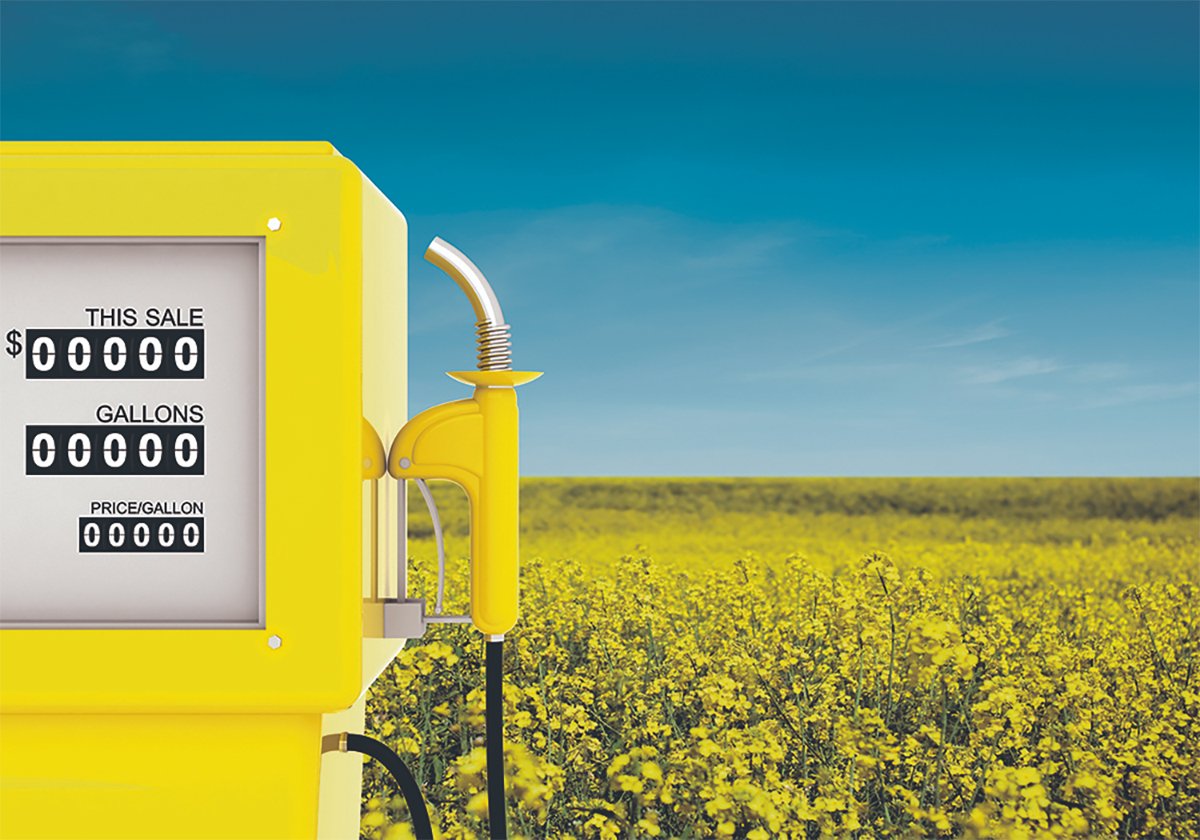Ghosts are wandering around Prairie canola bins and the Canola Council of Canada is warning that these spectres could kill Canadian canola markets.
By the start of the new crop year, several old canola varieties may not be deliverable to crushers or grain companies.
“This is a warning to growers that this could happen, and by seeding those varieties this year they may be out in the cold in terms of the market,” said JoAnne Buth, the canola council’s vice-president for crop production.
“We don’t want growers to be growing something and then finding out in the fall that they can’t deliver.”
Read Also

Biofuel sector happy with federal budget
Advanced Biofuels Canada says new Biofuel Production Incentive is a lifeline until CFR amendments are in place.
Selling canola used to be simple. A farmer or trucker brought a load of canola to an elevator or crushing plant and dumped it with few questions asked.
But because of increasingly tough rules about genetically modified varieties, some buyers may follow Archer Daniels Midland’s lead and start forcing farmers to declare what varieties of canola they are delivering, Buth said. If those varieties are on the banned list, they won’t be able to deliver.
The list of don’t-grow varieties is available on the council’s website at www.canola-council.org, has been mailed to most farmers and is being publicized at a series of farmer meetings this spring.
All of the varieties, such as Roundup Ready HySyn 101, a batch of bromoxynil-tolerant varieties and a litany of old Liberty Link varieties, are no longer commercially produced by the seed industry, but the council fears farmers may have old stocks or farm-saved seed.
For instance, Zeneca Seeds stopped selling HySyn 101 after 1999 and it was deregistered in 2003, but it was still grown in 2005.
Rejected shipments
The variety was never approved in Japan and the Japanese government has said it will test imports to ensure they don’t contain the variety.
“Detection of this variety will result in shipments being rejected, which could cause millions of dollars of lost business and jeopardize Canada’s international reputation,” says the canola council’s Canola Export Ready website.
The bromoxynil-tolerant varieties were never approved in South Korea and will not be approved in Europe. European regulators are being asked only to approve new GMO events in Liberty Link varieties, not the old events used in discontinued ones.
Canada’s canola industry is keen to get European approval for the newer commercial varieties, but the presence of even small amounts of varieties with unapproved GM content would stop Canadian canola shipments.
“With these discontinued varieties and discontinued events, it’s important to understand that there’s zero tolerance for an event that’s not approved in a country, so growers need to understand that some of these varieties will not be acceptable,” Buth said.
The Canola Export Ready program also highlights banned pesticides. The presence of a banned pesticide can imperil export shipments and cause a farmer’s canola to be rejected at the elevator or crusher.
Farmers with varieties on the don’t-grow list can generally move them through the elevator and crusher system, as long as they do so by July 31, the end of the crop year.
But that does not apply to HySyn 101, which no one accepts. It should be destroyed. Bromoxynil-tolerant varieties on the list should not be delivered to crushing plants and the listed, old technology Liberty Link varieties cannot be delivered to an ADM facility.















